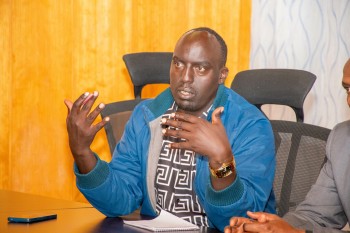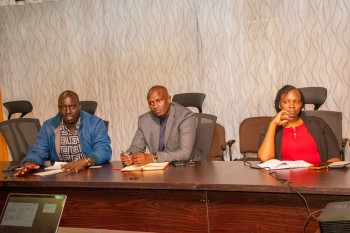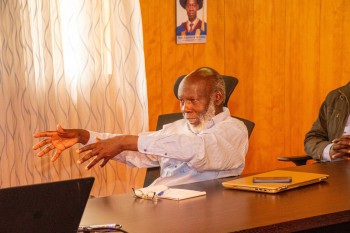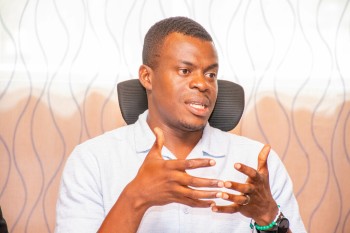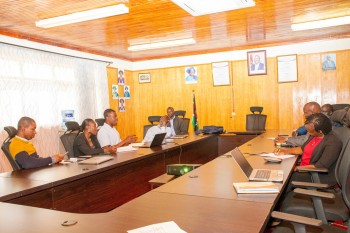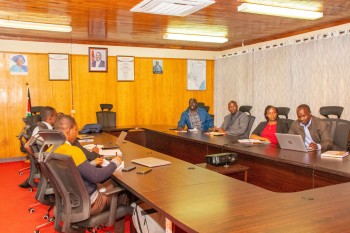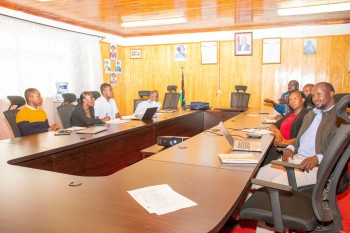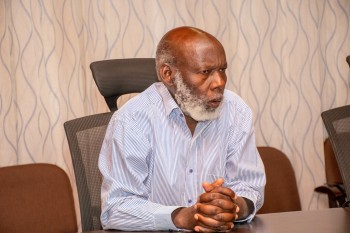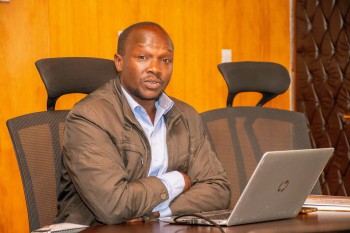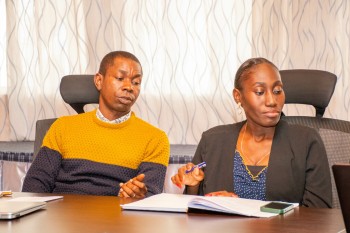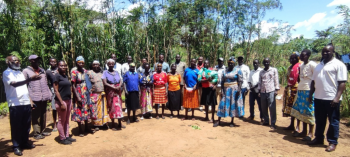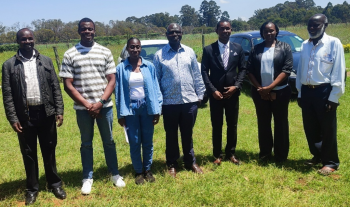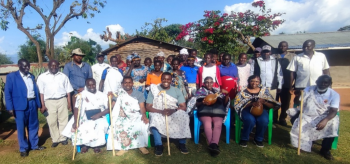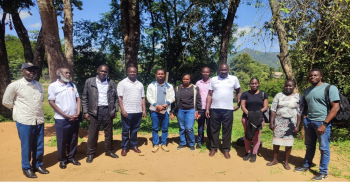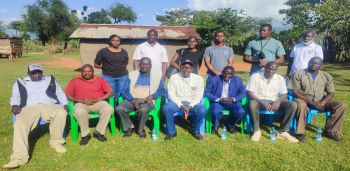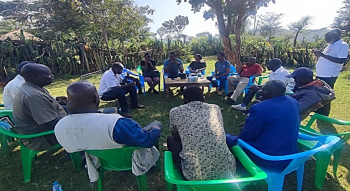The Engaging Local Communities in Minor Crop Utilization for Biodiversity Conservation and Livelihood Enrichment project (EMBRACE), is dedicated to the restoring of vital ecosystems, the elevation of local communities, and the advocacy of biodiversity conservation across 25 indigenous communities in Ghana and Kenya. The project to positively impact the lives of over 1,250 households by fostering community empowerment, harnessing local knowledge, and facilitating collaborative endeavors with partners to promote responsible governance.
Prof. Thomas Cheruiyot, our Vice-Chancellor, hosted the Ghanaian team led by the Project PI Dr. Clement Oppong, alongside Dr. Chinbuah, Jeanette Aduhene (Project Finance), and Dr. Hillary Mireku Botey (Project Coordinator) during their peer exchange visit. The primary objective of this visit was to assess the preliminary progress and fortify the essential collaborations that underpin the EMBRACE project. Prof. Cheruiyot commended the project’s unwavering commitment to addressing the needs of marginalized communities and fragile ecosystems. He implored the teams to intensify their engagement and collaboration with these communities to ensure sustainable solutions in the face of the challenges posed by climate change and food and nutrition insecurities.
Led by the CSIR-Crops Research Institute (CSIR-CRI) in Ghana, and in partnership with Kenya Forest Research Institute (KEFRI) and the University of Eldoret, EMBRACE transcends mere conservation initiatives. It represents a comprehensive framework for climate-resilient, inclusive development, seamlessly intertwining agroforestry, ecosystem restoration, and sustainable livelihoods into a unified strategy. EMBRACE advocates for participatory biodiversity conservation by engaging communities in the revitalization of their degraded ecosystems through innovative agroforestry models and effective ecosystem management practices. A notable feature is the establishment of agrosilvopastoral farmsteads, which pave the way for economic autonomy, particularly for women and youth, thereby alleviating pressure on forest resources while generating diverse and stable income streams for families. The project will facilitate the establishment of community tree nurseries to enhance resilience and promote long-term communal growth.
The UoE team are Prof. Julius Ochuodho (Team Leader), Dr. Harrold Rachuonyo, Dr. Jennifer Rono, and Mr. Alkamoi Bonface. During the visit to Kenya, the Ghanaian participated in the field mission to West Pokot County, where the delegation was received by the Kipkomo Sub County Deputy County Commissioner (DCC) Ms. Imbanga Sheila, members of the Ministry of Agriculture, and the Roretwo Self Help Group in Chepareria Ward.
The EMBRACE project, known as Kumbatia in Kenya and Atuuu! in Ghana is underpinned by essential principles such as Inter- and Intra-Transdisciplinarity, innovative methodologies, and the invaluable incorporation of indigenous and local knowledge. It prioritizes gender equity, social inclusion and empowerment, as well as equitable access and benefit-sharing, thereby cultivating robust collaborative partnerships. Its focal areas encompass Agroforestry, Biodiversity Conservation, Climate Resilience, Community Engagement, Indigenous Knowledge, Minor and Under-utilized Crops, Sustainable Livelihoods, Forest Restoration, Ecosystem Management, and Participatory Governance. Through dedicated workshops, engaging community forums, and dynamic knowledge-sharing platforms, EMBRACE will actively nurture a vibrant culture of collaboration and continuous learning, while also informing policy.

